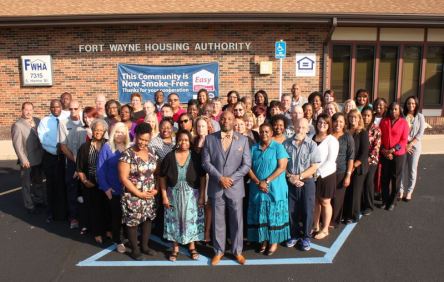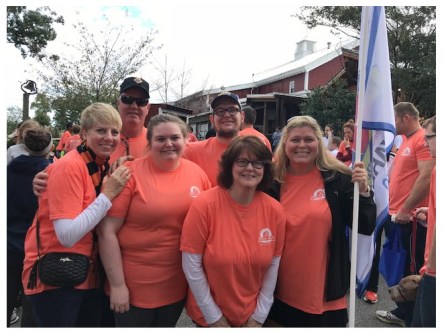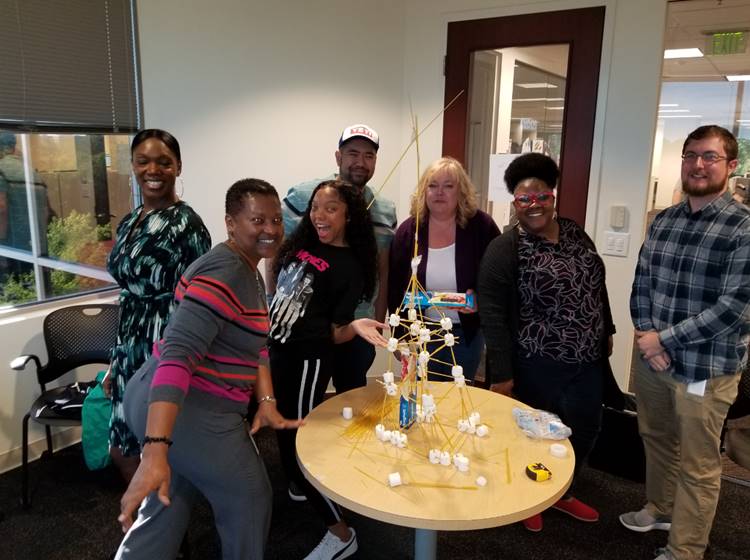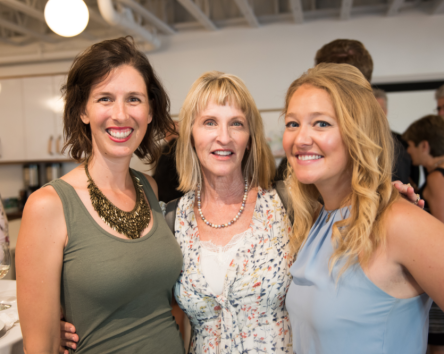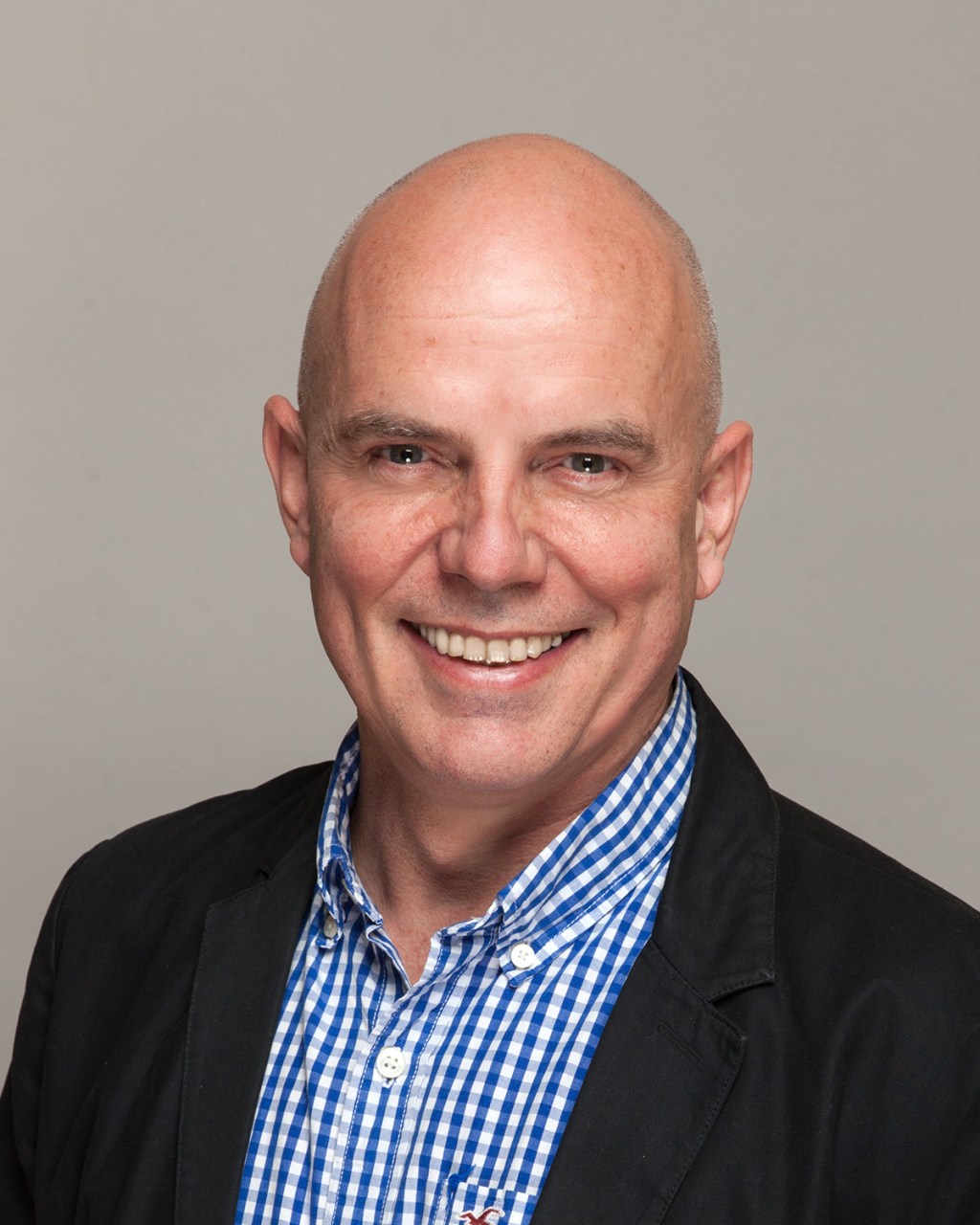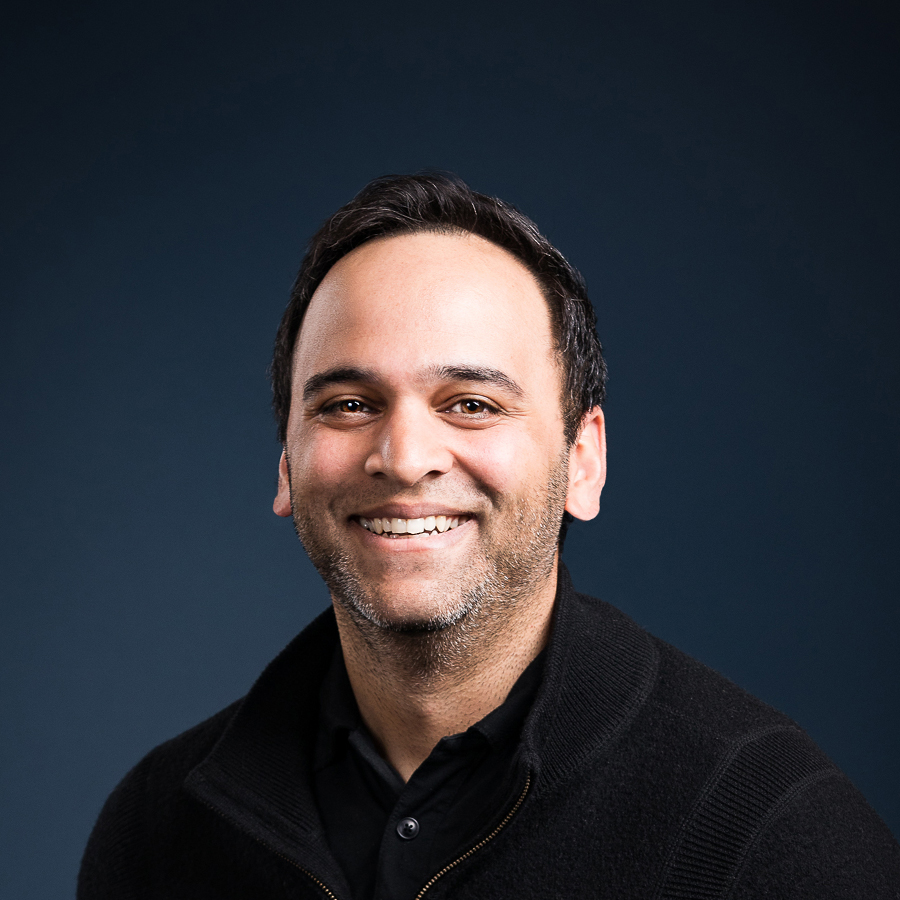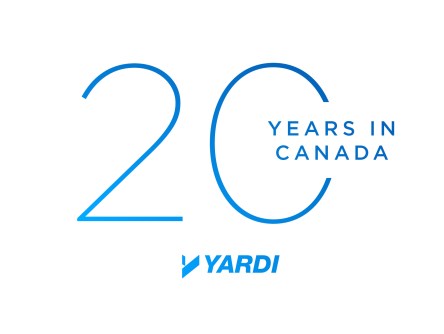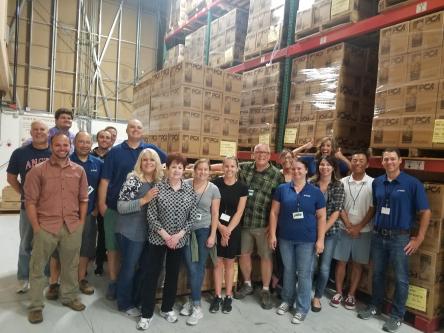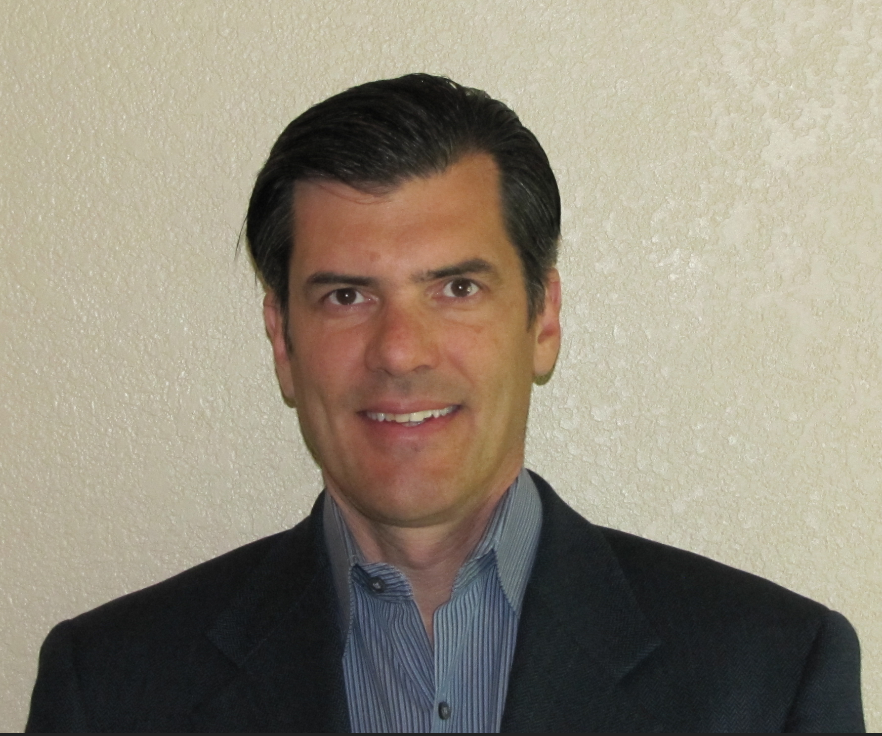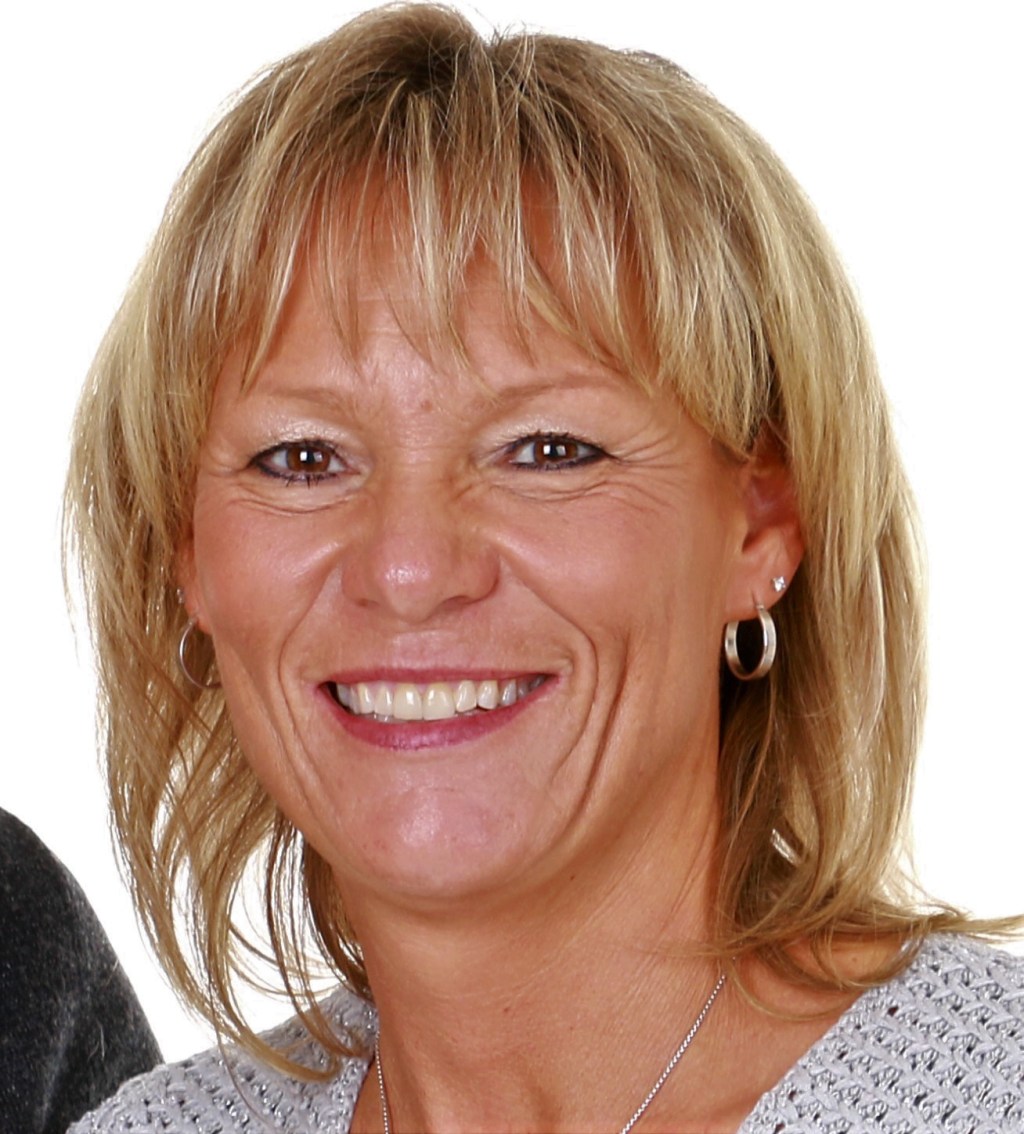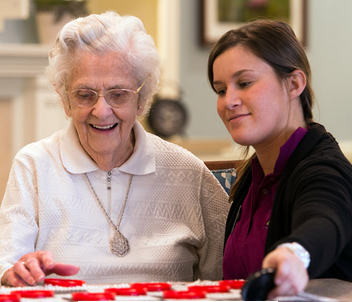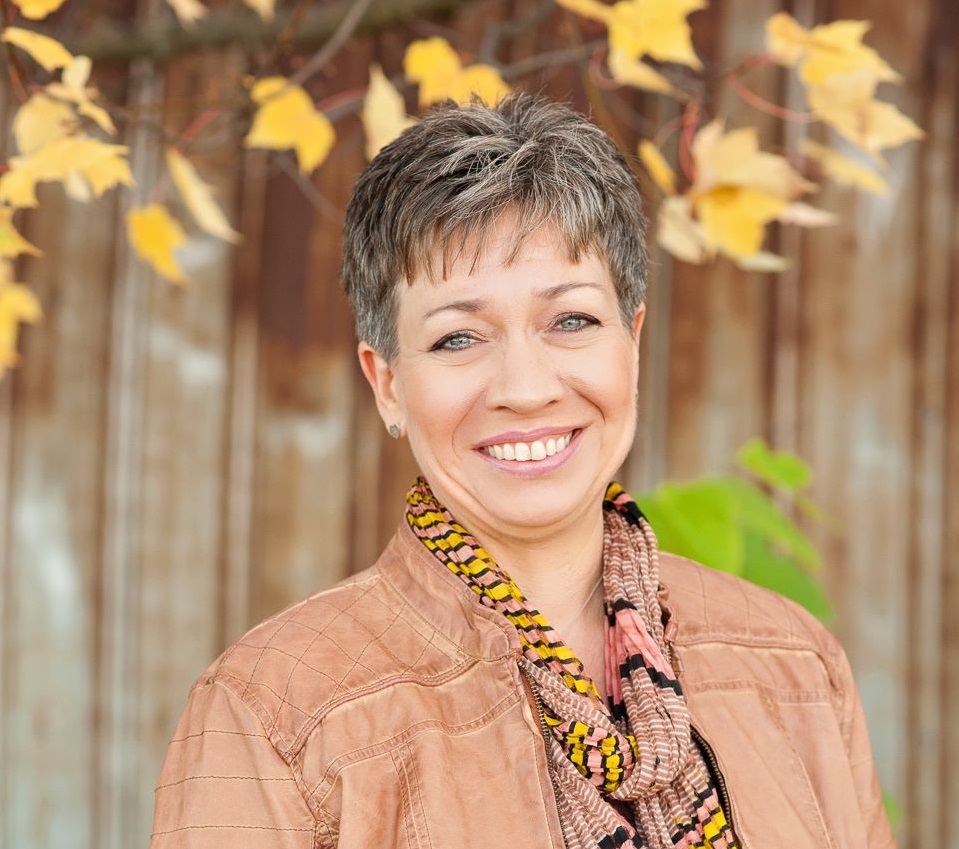Support services can be more effective and valuable to a community when providers work together. By taking a collective approach to serving needy residents, organizations can identify synergies in services and carefully plan which are best fit for specific clients. For example, a supportive housing program may have a vacant unit reserved for disabled veterans, and a veterans’ service office may have a client graduating from a transitional housing program. Coordinating those programs would help to smoothly transfer the veteran to the permanent housing unit. In Fort Wayne, Indiana, the Housing Authority (FWHA) has stepped up to help local organizations work more cooperatively. For its effort, FWHA received an Award of Excellence from the National Association of Housing and Redevelopment Officials (NAHRO). FWHA assists more than 8,000 individuals in their community at any point in time. Their clients’ needs for assistance go far beyond basic affordable housing subsidies. Some clients are formerly homeless and need assistance furnishing their new permanent homes. Others require access to discounted food and clothing. In fulfilling those types of client requests, FWHA found itself working with many local service providers. There are more than 150 in the Fort Wayne area, each with a set of services available. George Guy, CEO and director of FWHA, saw an opportunity to benefit the community by getting those providers together with a goal of forming a consortium of representatives that could exchange and coordinate services. The result of that coordination effort is what’s become known as Housing Strategies Meetings. FWHA invited 270 individuals to the first session, at which attendees saw more than 35 agencies present a high-level overview of their services. While receiving that program-level information was valuable, personal connections made in the room were also real benefits of the meeting. FWHA...
Walk for Hope
Yardi Raleigh
The Yardi Raleigh TKO group recently participated in a notable local event to raise awareness and research funds for mental illness: the 30th annual Thad and Alice Eure Walk for Hope. Team members who walked for the cause were Blair Kramer, Sean Bryant, Pam Davison, Karen Gibson, Jim Hill, Mimi Hill, Trevor Hyde, Chuck Justice, Kimberly Wood, Victoria Parsons, Travis Taliaferro and Rich Stevenson. The group raised $2,583 to contribute to the Walk for Hope Foundation. Founded by a well-known Raleigh family after their son was diagnosed bipolar disorder, The Walk for Hope Foundation has awarded 139 scientific research grants totaling more than $5.7 million. These funds have leveraged an additional $145 million from the National Institute of Mental Health (NIH) and other federal agencies. The TKO team’s participation in the walk has a personal and professional connection. “We lost a co-worker to suicide and the office was stunned. No one knew there was a mental health issue. Since that time, we have worked hard to support one another and have found that supporting causes like the Walk for Hope and the Foundation of Hope is a great way to support our community and help reduce the stigma that is unfortunately still attached to mental illness,” explained Kimberly Wood, a P2P Consultant on the team. “We reach out to one another when we sense someone is struggling. The Walk for Hope is a fun event, but it is rooted in very strong memories of Tim Owens, who we still miss to this day.” Learn more about the Walk for Hope Foundation and their year round events to fundraise for mental illness research. Yard is Energized for Good! Learn more about the company’s philanthropic and volunteer efforts around the U.S. and the world...
Culture First
At Bloom Senior Living
Bloom Senior Living has a simple, yet aspirational mission: to help residents flourish. The family-owned and operated company, started in 1963, is dedicated to helping seniors live full, meaningful lives. But just as important as it is to make sure residents feel like family, at Bloom, staff members feel like family too. The leadership team has made creating a nurturing company culture their priority, because they believe if the culture is right, everything else—including delivering on their brand mission—will fall into place. That’s why it’s critically important to Tony Kantor, principal and director of finance, and Brad Dubin, principal, director of acquisition and general counsel, to create an office where employees feel valued and have all the resources they need. With eight communities across five states, Bloom began using Yardi to create a scalable business model that put people first. “We wanted a fully integrated product, one system throughout the entire cycle. It’s more seamless and efficient for our team, who already have to learn lots of different systems. Streamlining is a major benefit,” Dubin explains. It’s that efficiency that’s helped the company’s 40 Yardi users simplify processes and eliminate tasks in order to do what they love most: deliver great customer service to residents. “We use Yardi for everything,” says Dubin, who handles Bloom’s marketing and sales. “As soon as we get a prospect, we enter them in the system and start tracking all their data. All the calls, all the marketing activity. Sales one hundred percent relies on the CRM system. I can’t imagine not having it.” What the team likes most is the structure the software has helped create. Having an automated process takes the guesswork out of the sales cycle and keeps prospects moving through the pipeline. “It’s helped us systemize the...
Excellence Starts Here
Yardi Atlanta Spotlight
Every year, the Atlanta Senior Committee, a team of senior account managers, facilitates Customer Service Week for the regional Yardi office. This year, activities included outrageous games and fun educational sessions that demonstrated the theme “Excellence Starts Here.” The Balance Sheet sat down with three committee members to celebrate the week’s victories. Unity, Learning, Fun Each October, Yardi joins numerous organizations throughout the nation in observance of Customer Service Week. Stephanie Mayes, senior technical account manager for Consulting Practices, explains, “Customer Service Week is an opportunity to improve a company’s teamwork and customer service skills sets.” Team lead Johnathan Atkins adds, “At Yardi, it’s a week of fun. It’s all about putting people in uncomfortable situations and watching them grow. They become more comfortable with concepts and one another with every activity. They’re ready for whatever the work day throws at them.” Customer Service Week events activities included continuing education and team building games. Learning Through Play at All Ages While the eLearning classes were a success (and can be accessed by employees via eLearning) the games proved to be the department’s favorite. For games, the Senior Committee randomly split employees into 20 teams of about 12 people. Atkins smiles, “If we let them pick their teams, they’d stick with their friends. This was a good chance for them to branch out, meet others that work around them and build rapport.” The teams were immediately put to the test. They created unique team names and identified three things that everyone in the group had in common. Atkins says, “It’s surprisingly hard to find three things that 12 or 13 people have in common. It gives the new teams something to discuss and find common ground.” For the rest of the week, people who barely knew one another were encouraged to collaborate through a series of challenges including Head’s Up trivia, The Spaghetti Build Off, and Golf Ball Pass. Teams loved the Spaghetti Build Off. “Teams received marshmallows, uncooked spaghetti noodles, and tape,” says Tia Wingster, senior technical account manager. “The challenge was to build the tallest structure they could in 30 minutes. The winning team had a building over 65 inches tall.” With a laugh Mayes recalls: “It’s funny but, for all of them, the best work occurred in the last minute. They didn’t have time to overthink. It was brilliant.” Atkins says, “It was a game that brought everyone forward. Quiet people may not speak up during trivia but then they shined during the building activity. There were creative structures with strong bases and cool features.” Wingster observed a pregnant woman who couldn’t stand, hover, and stoop with team members working on the vertical build. Rather than sitting out, she took a seat and contributed to the construction of the base. “That really stood out to me. It was great to see everyone participating.” The winners of each game faced off in a final competition: the Golf Ball Pass. Passing a golf ball between 12 people using only a spoon proved to be a daunting feat—especially with 200 people watching. Atkins grins, “It was so much harder than everyone thought. It required so much patience and a steady hand. The Dynamic Dozen won, receiving $30 gift cards and Yardi merchandise.” Necessary Playtime “Customer Service Week is important for employees because it’s a week of camaraderie. We are growing fast and this is a good opportunity to grow as a unit,” says Mayes. “Customer Service Week contributes to Yardi’s company culture as a whole,” Wingster says, “I’ve had past jobs that didn’t focus on morale and rapport or establishing a community between departments and leadership. What I love about Yardi is that we’re a big family in customer service. We all craft different ideas to build up to excellence. It gives a sense of connectiveness that you may not find...
Yardi Canada
Programming Spotlight
Continuing our focus on the leaders of Yardi Canada, meet Dana Samargiu, senior software development engineer, and Kwok-Kin Wong, senior technical project leader. Both are part of the Yardi Canada programming team and joined the company with the acquisition of Newstar in 2003. Since becoming part of the Yardi Canada team 15 years ago, both have worked on a variety of Yardi products. And both have fully embraced the collaborative nature of the Yardi culture, with a focus on supporting clients, employees, and striving to grow. Dana Samargiu “Yardi Canada is my second/extended family,” said Samargiu (pictured, left). “My favorite part about working here is the spirit of camaraderie, the way everybody pitches in to help in need or to have fun together. It makes working here a real treat.” An immigrant to Canada from Romania along with her husband, the family came to North America in 2001 as part of the Skilled Worker Immigration Program in hopes of increased professional opportunities and a better future for their son. Samargiu had a degree in computer science and engineering and had been a developer and software consultant back in Romania, where she and her husband owned their own small firm. But when she arrived in North America, the dot com bubble had burst and opportunities were slim. She took a client support role when she was hired at Newstar, but hoped for more. “My skills were recognized at Yardi. I moved from a customer support position to a tech analyst role, and then to a development position the next year,” she recalled. “Today, my favorite part of my job each day is when I manage to help a client, QA or CSD with any technical issues they have, or when I manage to find solutions...
Admissions Automation
Ditch paperwork, improve sales
With senior housing occupancy at its lowest level since 2010, attracting new residents to your community can be challenging. Staff must work harder than ever to get prospects into the pipeline—but getting seniors in the door is just the first step for your sales team. They call it the sales process for good reason. Moving senior living prospects through the funnel and closing the deal requires, on average, 25 contacts—calls, emails, appointments, tours—over the course of two years. Conversion is a marathon, not a sprint. And as many salespeople will tell you: a lot can happen during those weeks and months leading up to a signed lease. Prospects can change their minds, become frustrated or disinterested, or find another community or course of care, among other things. How can sales teams mitigate prospect fallout and increase conversion? Shorten and simplify the sales cycle. One way to do that is using automation to reduce paperwork and streamline the closing process. Because when so much effort goes into the pipeline, dealing with fall through in the final stages is not only heartbreaking, but also costly to the business. That’s why 68% of best-in-class sales teams have made the switch to electronic signatures to improve the customer experience and close deals faster. In fact, companies who use automation tools like e-signatures during the admissions process are 18% more likely to shorten their sales cycles. According to an IDC white paper on bridging the document disconnect in sales, there are plenty of opportunities for companies to impact their sales process by going paperless. Here are a few ways automation in the sales process can benefit your business: Increase staff efficiency Salespeople spend more than 36% of their time on administrative tasks—and less than two thirds of their time on their core job function: completing the sale. If that’s not concerning enough, consider that 43% of office staff say they need to use several disconnected systems and often have to copy and paste or rekey information, an error-prone and time-consuming process. Employing automation, like templatized electronic leases and e-signatures, during the sales cycle not only takes the guesswork out of document generation, it eliminates the frustrating use of disparate systems that draws out the closing process. Build prospect rapport The typical senior living community receives 31 new inquiries per month. That’s a lot of prospects to keep track of week-over-week, all year long. Fostering a positive relationship with a would-be resident is critical to winning their business. Automating the capture of information as a step in the sales cycle not only ensures that personal details are collected, it guarantees they’re retained and visible to the entire sales team. Reduce errors We love office supplies as much as the next person, but those little “sign here” sticky arrows aren’t doing your community any favors. Consider that 36% of sales leaders say agreements are missing signatures or dates—or have been signed by the wrong person altogether—and another 51% say that documents are often misfiled or lost. Systematized residency agreements and e-signatures, like those found in Yardi Senior CRM, eliminate paperwork and reduce the disorganization and disarray that come along with paper records, curtailing costly mistakes and missed opportunities. Optimize customer experience 40% of front office staff say the documents they send to prospects don’t always display or print correctly, and 38% say recipients sometimes can’t even open them. Imagine a lengthy sales process involving emails and call follow-up, meetings and tours, family visits and stacks of paperwork—and all that’s left between you and closing the deal is a required signature on the lease. You’ve completed the document, crossed all the t’s and dotted the i’s, and sent it to the prospect to print and sign, only to find out that the images won’t render, and the lease cannot be inked. A deal that was all but done is now in limbo, and you’ve left your prospective resident with...
SEE International
Providing Sight Worldwide
For 44 years, Santa Barbara-based Surgical Eye Expeditions (SEE) International has been providing restorative eyesight care around the globe. The non-profit organization, founded by local ophthalmologists in 1974, relies on volunteers, grants and donors to make its important work of reducing preventable blindness possible. And as it heads toward 50 years, SEE is endeavoring to treat more patients than ever before. “There are 36 million people in the world who are blind, up to 75 percent of those are blind from preventable conditions,” said Matt Wheeler, vice president of communications for SEE. “One of the major problems is that 80 percent of these people are living in areas of the world where access to care is not available.” Cataracts, one of the leading causes of blindness, can often easily be treated – but patients must have access to qualified ophthalmologists who can perform a simple surgery. Partnering with local ophthalmologists in every region where they work, SEE volunteers made 250 trips to over 40 countries this year, and performed 40,000 sight restoring surgeries. Volunteer doctors pay for all of their own travel and housing expenses and receive no pay for their work. By 2020, SEE aims to perform 100,000 surgeries a year. In the course of the organization’s existence, volunteers have conducted 4 million eye exams and performed a half million surgeries. Other work includes training regional doctors on cataract surgery techniques, providing supplies for clinics that don’t have access to proper materials, and conducting preventative eye exams in impoverished areas. In assessing the support it has received from corporate sponsors over the years, SEE staff realized that one Santa Barbara-based company was unique in terms of longevity and generosity of support – and happened to be a close neighbor, too. “Our leadership was...
Congress in Session
Yardi Sponsors Australia Event
In September, Yardi reaffirmed its longstanding commitment to Australia’s property industry by supporting—for the tenth year—the highly successful Property Congress in Darwin, Australia. As Principal Sponsor, Yardi was proud to join the Property Council of Australia in hosting nearly 800 delegates from across the property industry. The attendees discussed the latest challenges, trends and opportunities facing the industry—and the future for Australia that the delegates are helping to build. The event began with celebrations. On the conference’s eve, Yardi hosted a party at Darwin’s bustling Mindil Market that featured a spectacular sunset, sumptuous food, a fire dancer, a didgeridoo player (for those who might not know, that’s a wind instrument developed by indigenous Australians) and lots of good fellowship. With the party successfully wrapped up and new connections established, it was time for the main event. This year, The Property Congress was focused on major issues driving property development and investment in Australia and globally. With established and emerging leaders in the commercial, residential, retail, industrial, development, retirement living and investment sectors in attendance, it was a unique chance to hear from a wealth of thought leaders about the fundamental issues affecting our industry now and in the future. While all guest speakers from the two-day lineup were remarkable in their own right, highlights included: Headline keynote speaker Sir John Key, a former New Zealand prime minister, who touched on a range of current topics including leadership qualities, American tax and trade policy and housing issues. Noting the high growth rate of Australian urban developments, he urged a thoughtful planning process that integrates communities and connects them with transport. He also didn’t miss the opportunity to discuss the constantly-changing Australian political landscape, commenting that by the end of his political tenure he would ask...
Reimagining Investment...
Asia market insight
Editor’s note: The following post was written for real estate and investment professionals in Asia by Bernie Devine, Regional Director (Asia) for Yardi. With 30+ years’ experience dedicated to real estate and technology, Bernie is a leader in digital transformation in real estate and using data to create a more competitive and collaborative environment. He supports real estate clients with Retail, Commercial, Industrial, Residential and Mixed Use assets, helping them to grow their operations, create efficiencies, and gain better insight into their business. His expertise includes asset and investment management, private equity, operations improvement, program and project management, finance, technology implementation and compliance. Currently responsible for the growth of Yardi Systems in Asia, Bernie lives in Hong Kong and is a qualified accountant and economist. He has published over 60 articles and has extensive public speaking experience. I’ve recently seen a lot of discussion around the tokenisation of real estate investments. Some has been sensible, but some has missed a few key points. Two key challenges of the real estate market for the last 400 years when compared to other investment asset classes are the slow pace of transactions (it takes a long time for ownership to be transferred) and liquidity (the purchase price is so large that only a limited market of buyers exists). There have been many innovations over the years (Such as private equity funds and REITS) that have sought to address these issues, but the proptech community now thinks it may have a better solution. Tokenisation of real estate investments is about changing the way ownership of an asset is represented. It’s proposed that this change in ownership model will open up how the purchase of the asset is funded and how ownership is transferred. Basically, if ownership can be...
Akshai Rao
Yardi Leadership Spotlight
Akshai Rao’s path to Yardi wound from Austin, Texas, where the vice president of Procure to Pay earned his bachelor’s degree before taking a job in Northern California. He then went to Michigan for business school and Boston for another job before landing back in Austin as a Yardi employee in 2013. Today Rao oversees client services for Yardi Procure to Pay, an end-to-end procurement, vendor management and electronic invoicing platform. He shared highlights of the platform with us in a recent interview. Q: What matters most to property managers who deal with goods and services procurement? A: They want to perform their back office tasks, especially procurement and accounts payable, more efficiently. That lets them spend more time on front office duties, such as building compliance and customer services. Q: Can you describe how the elements of Yardi Procure to Pay meet those priorities? A: We provide one platform for the entire procure to pay process—approval workflows for purchase orders and invoices that are consistent with the client’s process, plus online purchasing, vendor management, outsourced invoice management and vendor payment services. All of these processes are accessible in real time and built into the Yardi Voyager® property management and accounting platform. Yardi has documented client savings of up to 80% on per-invoice costs and 75% on per-invoice processing time. A single connected procurement solution makes day-to-day purchasing, payment and vendor management as simple as possible. In addition, we’re building a robust analytics package to help clients pinpoint areas in which they can make process improvements. We can compare our clients’ processes to industry benchmarks, and make recommendations to improve their current processes. Yardi Bill Pay, which is part of both Yardi Payment Processing and the Yardi Procure to Pay Suite, outsources check, ACH...
20 Years of Tech
Yardi Canada's Journey
Celebrating 20 years, Yardi Canada has come a long way. As a leading innovator that delivers technology solutions to move the Canadian real estate industry forward, Yardi Canada focuses on helping clients thrive through every change. We caught up with a few of Yardi Canada’s leaders to learn more about the company’s evolution. From DOS to Windows to Internet based web apps to mobile apps and now on to artificial intelligence, Yardi has always been there with a solution for its clients. Here are a few technological highlights from the past two decades. A Unique Market Mobility and the cloud might reign now, but it all began with DOS. Introducing real estate companies to new technologies to improve business operations has never been an easy task. As Canadians, we tend to be a little more conservative when it comes to change. However, Peter Altobelli, general manager and vice president of sales for Yardi Canada, found it was easy to bring Yardi’s three DOS products to market: Yardi Basic, Yardi Deluxe and Yardi Premier. “DOS was a great product to implement since it was reliable, simple and easy to use. It was a technology that property managers understood. Plus, it had all these great shortcuts, because we didn’t have a mouse back then,” recalls Altobelli. Altobelli set up Yardi’s first office in Canada in 1998, which started with four people and now has grown to a staff of over 200. Today’s multitasking generation, accustomed to multiple windows and screens, would feel restricted with a DOS platform. But back then, users could accomplish single functions at a time quickly and efficiently. It was exactly what the industry needed as a catalyst towards more technology and innovation. Moving to the Internet At every innovative milestone, Yardi Canada...
Food for Thought
Yardi Boise Gives Back
Yardi’s corporate culture includes a focus on community service. In the Yardi Boise office, a team of employees focused professionally on the senior living product suite decided to bring that value to life by participating in two local efforts aimed at combating hunger. First, staff partnered with Metro Meals on Wheels to serve 80 seniors in the community. Since many of the elders that benefit from Meals on Wheels are homebound and unable to prepare their own food, they rely on meal delivery as their primary source of nutrition. The Boise office team was happy to help with distributing food, cleaning, and socializing with seniors. Metro Meals on Wheels serves meals to nearly 1,000 Boise senior citizens each weekday and over 700 each weekend. Inspired by their work with Meals on Wheels, the team sought a new philanthropic challenge, this time joining with the Idaho Foodbank. The independent non-profit organization is entirely donor supported and is the largest food bank and distributor of free food assistance in Idaho. One in seven Idahoans are in need, and the food bank is making strides to not only provide meals but to promote healthy, locally-sourced foods. In fact, three quarters of the food distributed by the Idaho Foodbank is fresh or fresh frozen versus shelf stable, up from just fifty percent six years ago. So when the organization was hosting a food drive, the Yardi staff was excited to participate. This time, they volunteered to put together meals for the federally sponsored Seniors’ program and gathered donations of juice, cereal, milk and eggs into individual meal boxes. In all, the 60 employees assembled 15 palettes of meals, estimated to contain an amazing 14,000 pounds of food, to be distributed to local seniors. That’s more than enough to...
Senior Living
Improving Employee Retention
The senior living industry employs close to a million people, and the sector is expected to add nearly 300,000 jobs by 2026. With employee turnover already a worrisome—and costly—issue, companies need to arm themselves to keep up with demand. That means thinking not just about hiring, but also retaining key staff. What does it take to temper employee turnover? It’s not just about more money. If you want to keep employees in this competitive landscape, it’s about engaging staff by creating a truly employee-centric culture. Here’s how: Build an environment of recognition In order to realize the significance of their roles, staff need to feel appreciated by management, their peers and by residents. Sadly, only 21 percent of employees think they’re truly valued in the workplace. The good news? 44 percent say they’d regularly give peer-to-peer recognition if it were easy to do. Develop simple, quick ways to deliver acknowledgement, and make sure that it’s visible across the organization. You might be surprised how much feeling appreciated boosts morale. Promote balance with flexible scheduling Practicing work-life balance in the long-term care industry, where many residents require round-the-clock care, can prove to be more challenging than in other industries. But giving employees some flexibility is possible. Start by setting a quota on number of weekends and holidays worked, then allow staff to set schedules autonomously by working with colleagues to optimize their hours. Talk to standout staff Reach out to the best of the best on your team and ask important questions: What motivates them? Why do they stay? What could you be doing better? Find out what makes them tick, then apply these learnings to the greater organization. There’s no input more valuable than from top performers who are satisfied and come to work...
Asset Tech Upgrades
Insight from Todd Huebsch
Until fairly recently, enterprise software platforms for real estate largely focused on accounting, finance and other back office operations. The advanced programming languages, mobile reach and internet capacity that enable automated workflows and remote access available for the back office hadn’t reached the front office. Things are different today—for the better. In an article originally published in Journal of Property Management, Todd Huebsch, Yardi vice president of commercial sales, explains why. New software applications squarely target the front office, lending new dynamism to leasing, customer services, facility management, development and other operations. What does the evolution of technology dedicated to the front office mean in practical terms? For one, it means that property management technology has reached the point where remote access is both affordable and effective for managers involved in leasing, construction and facilities management. It also means leasing and asset management can work a deal together with a previously unattainable degree of collaboration. Development vice presidents can evaluate risk with instant access to project status, instead of waiting for a weekly report. They can leverage ERP data such as lease comps, revenue trends, contractor and job analysis, to make better decisions. Consider, for example, construction managers working to correct a problem with a building’s foundation. In an earlier era, they would call or email the back office, or even leave the site altogether to calculate the change order and negotiate the amount and cost code. Today, using apps designed specifically for their role, construction managers can enter the work order with just a few taps on a mobile device. The change order automatically flows to the back office and is recorded in the core property management and accounting platform. The adjustment is fully visible to all parties and the construction manager...
Flexible Workspace
Q&A with Tony Freeth
Editor’s note: The following interview originally appeared in GCUC UK and is reprinted with permission here. Tony Freeth has seen the evolution of the office space industry firsthand. Co-founder of Phoenix Broadband and creator of Medusa, a product that handles premises infrastructure, Freeth has played a pioneering role in bandwidth management and workspace wifi solutions since the late-1990s. Recently, Medusa was acquired by global real estate technology company Yardi. Freeth, who was at the first Global Coworking Unconference Conference (GCUC) in Austin, Texas in 2012, has now taken the role of Director of Coworking Europe at Yardi. With two decades of experience, Freeth provides a unique and valuable perspective on the now-booming workspace industry. We spoke with Freeth about the evolution of the industry, Yardi’s acquisition of Medusa, and how commercial real estate has now adopted coworking as an asset class. Here are the highlights of our conversation. What’s your coworking story, Tony? How were you introduced to what was then a small movement? Tony Freeth: In 2010, I was talking to someone at Steelcase who told me I needed to go to Coworking Europe. While there, I came across a bunch of people who had a very different idea of how people could work in a space, based on collaboration and community. We tried to sell that message to our conventional customers for many years, and for a long time their response was, “No that’s not what we do. Everyone wants a door.” We told them when you put millennials behind doors, it’s like depriving a plant of light—they just wilt. I met [GCUC producer] Liz Elam at Coworking Europe and she invited me to Austin for GCUC. It became clear that U.S. coworking seemed extremely vibrant and extremely well-organized. I imagine your...
OHCA Convention
Portland long-term care summit
Senior Living is headed to Portland as the Oregon Health Care Association (OHCA) hosts its Annual Convention & Trade Show, the largest long-term care conference in the state, on September 17 and 18. The event, expected to draw 1,200 attendees including owners, regional managers, administrators, nurses, department heads and direct care staff, takes place at the Oregon Convention Center. This year’s theme, “Experience the Music of Life,” is inspired by senior living staff and communities that encourage residents to live rich lives and enjoy each moment. A musical thread will weave its way throughout the conference: participants can observe music therapy best practices during the featured Music & Memory luncheon, which focuses on the use of music as a non-pharmacological remedy for residents facing challenges. Attendees are also invited to join the fun at an 80s themed dinner and karaoke event. The convention is set to close with an awards ceremony sponsored by Yardi. Keynote speaker Eddie Slowikowski, gold medal winner for the USA track and field team, will open the event with an address that encourages attendees be the best version of themselves in order to be stronger leaders. Over forty informative sessions, including many earmarked for continuing education units, are on the convention schedule. View complete session in the conference brochure. While exploring the trade show exhibitors, attendees are invited to discover Yardi’s single connected solution for senior living by visiting Booth...
Argentum Summit
Senior Living execs convene
Thought leaders and influential policy makers are headed to the annual Argentum Chief Executive Summit hoping to uncover ways to foster innovation and address the most significant business issues affecting the future of the senior living industry. The event is set to take place Wednesday and Thursday, September 12-13, in Boston, Massachusetts. A benefit of Premier Membership with Argentum, the summit provides networking opportunities as well as informational sessions and a lineup of inspiring guests. Speakers include Congresswoman Katherine Clark, Sociobiologist Rebecca Costa and Senior Economist and Policy Advisor Dr. Christopher Foote, among others. Program highlights include sessions focused on the impact of the economy on senior living workforce trends, midterm policy implications, the changing face of media communications and technology, in the form of a senior living science fair. Participants will also tour the MIT Media Lab, an interdisciplinary research laboratory at the Massachusetts Institute of Technology, and take a private riverboat cruise on the Charles River. Attendees can schedule time to meet with Yardi to learn more about its single connected solution for senior living...
Lynn Topp
Yardi Canada Spotlight
Lynn Topp, director of residential client services, has been key to the growth of Yardi Canada — and she started out as a Yardi client. A View from the Client Side While she initially thought it would be “just a temporary thing” before completing her CPA, Lynn’s career in the real estate industry began in property management 27 years ago. Lynn worked for a mid-sized company that managed residential, condo, commercial and non-profit assets. During that time, Lynn used Yardi software as a client, and learned firsthand how the right software can transform daily tasks and also businesswide operations. “When I came to Yardi in 2005, I had 14 years of property management experience, working in financial roles including property accountant and controller. I used Yardi software back then and implemented Yardi Voyager to manage 95 properties,” recalls Lynn. When Lynn joined Yardi’s Toronto office, it was a small group of 50 employees. Now she’s part of a thriving team of 200. “I’ve loved watching small teams at Yardi grow, and seeing clients embrace technology,” Lynn said. Known for her magnetic personality and sense of humor, along with being an awesome advocate for clients, Lynn also knows the importance of innovative technology to improve real estate operations. Game-Changing Tech “It’s really satisfying to see our more conservative clients — and Canadians tend to be a bit more conservative in general — become open to technology, to adopt it and develop their businesses with it and actually really like it,” says Lynn. In her role as director of residential client services, Lynn is dedicated to making sure Yardi’s clients enjoy every advantage that technology has to offer. Embracing the daily challenges that come with an evolving industry, Lynn is an expert on positive technology disruption...
Streamlined Success
Electronic Invoicing for Senior Living
With seventeen communities—and more on the way—each submitting 100-200 invoices a month, Linda Adams was shuffling a lot of paper. As the Accounting Manager for Northbridge Companies, a New England-based senior living provider, much of her time used to be spent digging up receipts or tracking down paper records across various decentralized offices. “When I had questions, I had to call another office and ask them. They’d have to find the invoice, scan it, send it to me for review. It was very time consuming on both ends.” But now, solving a discrepancy is “easy, easy, easy,” thanks to Yardi PAYscan. In 2011, Northbridge adopted Yardi’s Procure to Pay vendor management and electronic invoicing platform to streamline invoicing across all properties. The new system allowed the accounting department to access invoices and check whether payments had cleared without having to pick up the phone to call another office. In other words, team members could self-serve, reducing internal dependencies and churn. But time savings wasn’t the only benefit of a new system. PAYscan eliminates copying, mailing, and storing paper—and minimizes touch points that can lead to lost invoices and data entry errors. “There’s no need for us to use up valuable office space with paper invoices anymore when it’s all right there electronically. Once the tax returns are done, we can throw the documents out,” Linda says. “I can go back and look at invoices from 2012, and it’s right there. Plus, I work from home a few days a week, and it really cuts down on all that lugging paper back and forth.” The Northbridge team appreciates PAYscan’s versatility, too. “You can make the approval process as intricate or as easy as you want, which I love,” said Linda. Customizable workflows, flexible payment options...
Louise Steeves
Team Yardi Canada
Yardi Canada introduces Louise Steeves, product manager for Canadian development (and the residential modules in the Canadian market). Louise was Yardi Canada’s first Voyager account manager and has been key to the company’s success — and it all started with an unusual interview. Jumping In Adaptable by nature with a desire to keep learning, Steeves has an intimate understanding of the needs of the social housing market. “In my past role over 16 years ago, I helped implement software for a large social housing provider in Toronto. I quickly became a subject matter expert, which led to a project management role,” says Steeves. Software, however, was an entirely new realm for Steeves. “When I was working with the social housing provider, I recall one meeting that I had with Peter, where he mentioned that they had just signed a large deal which would mean that they would be implementing 40 clients all at once.” That exciting news led her to make the impulsive decision to apply for a position at Yardi. Her interview with Peter Altobelli, vice president and general manager for Yardi Canada and Tom Kearns, senior director for global solutions, was not at all what she expected. “When I arrived at Yardi to meet Peter for my interview it was really early in the morning, around 7:00 a.m., and I was the first one there. Peter came rushing in. He had just gotten off a red eye flight. He grabbed some coffee and we sat down to start talking. I hadn’t had an interview in about 17 years at that point, and I thought to myself, I can’t believe I’m doing this,” Steeves recalls with a big laugh. “Peter asked me some accounting questions, which I stumbled through and then he...

